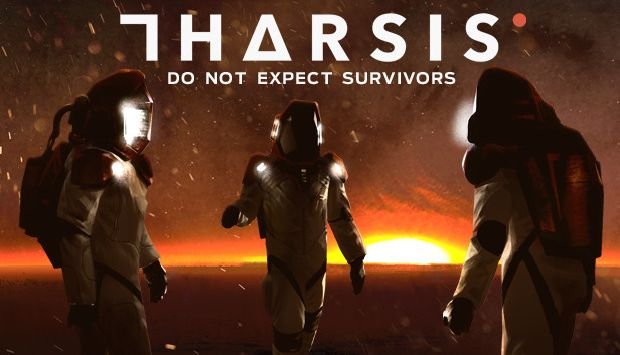“For here, am I sitting in a tin can, far above the world.”
Non-scientists will likely ask themselves, “What could go wrong with the first manned spaceship headed for Mars?” In the turn-based, space-faring game, Tharsis, the answer is… everything at once! Not only does the crew of the ill-fated space oddity known as the Iktomi find itself struggling against the desolate reaches of space, but they also must contend with a dwindling food supply, fires, electrical problems, and the looming threat of cannibalism. However, the biggest threat of all is the fact that the developers have intentionally set players up to fail over and over due to unlucky dice rolls.
Named after a giant volcanic plateau on Mars, Tharsis is not to be confused with "catharsis," because playing this tabletop-style game has the opposite effect. Tharsis has the unique ability to make players repeatedly scream obscenities at their TV while also taking note of what went wrong for the next playthrough. And there will be subsequent playthroughs, because this game will hook players from the start, make them lose over and over, rage-quit, and then come back the next day and try again. After dozens of attempts, I've only beaten it a few times, yet I still return to bask in my failure.
Players begin each game with their crew of six immediately dwindling to a crew of four thanks to a deadly micrometeoroid storm that cripples the ship. Eight sections of the ship remain, and each one is dedicated to serving a particular purpose. With the food supply destroyed, players will surely want to create food in the greenhouse, and health can be replenished in the medical bay. However, constant threats to the ship and its crew must be weighed against generating resources every step of the way. You see, each turn brings at least one new threat, such as an electrical malfunction, oxygen leak, or meteor strike. With ten successful turns required to land on Mars, the challenge is steep.
Each one of the four characters begins the game with a random number of dice they can roll, and this number diminishes with each turn. Fortunately, the number can also be increased by eating food, getting buffed by the captain, or my favorite choice—cannibalism! I don't always use the last choice because it has a downside, but I love the fact that it's an option. Since dice rolls are used for practically everything in the game, I find them to be the most valuable resource. As a result, maintaining a high number of dice rolls is as vital to success as good fortune.
When damage or tragic events happen to a section of the ship, that section is assigned a random number that must be achieved through accumulated dice rolls in order to be repaired. For example, a meteor strike may hit the Flight Control section for 23 damage with a penalty of two bars of ship health. If this isn't repaired, then the ship will take two bars of damage. Another example might be damage to the Health Bay for 8 with the penalty of losing one bar of health per character per turn if it isn't repaired. If the ship takes too much damage, the game is over, but most of the time characters can lose some health and still survive. It's up to players to decide which one to repair if they can't repair both. Balance this against creating food to replenish dice rolls or repairing the ship via the Engine Room and you begin to see how important—and difficult—these decisions can be.
Additional difficulty stems from random penalties for certain dice rolls in every damaged section. One section may put rolls of 1 and 3 in stasis, which means they can't be rerolled, while another section may make a certain roll void and remove that die altogether! My least favorite is character damage because it removes one bar of health when a certain roll is achieved. Sometimes the same number will remove multiple bars of health, and this is where spontaneous bouts of sudden Tourrette syndrome will surely occur. I can't tell you how many times I've had good fortune turn into complete failure due to one damned section that inflicts double or triple health damage per die.
Yet I return. After starting a game with extreme damage to two sections and only a few dice per character, I'm doomed to failure. Yet I return. After repeated rolls of the dice don't achieve enough points to repair a section with low damage, I waste another character on the same section only to achieve the same result. Yet I return. After the excitement of being on turn nine transforms into anger as poor dice rolls doom me to failure, convincing me to quit in frustration. Yet I return.
Why do I keep coming back to a game whose cards, or in this case dice, are stacked against me? It's because nearly every other aspect of the game is crafted with care. For example, I appreciate how there is an area to hold the individual dice rolls that I don't want to use immediately but also don't want to reroll. This comes in handy more than I could have imagined as I may be looking for double of the same number to activate a section's specialty (two of the same number in the greenhouse will give me one piece of food) and using one die towards this goal limits it to that number. If I put that die into the Dice Hold area instead, my chances of rolling double are increased because I can either use a second of the same number or two of any other number that may be rolled.
I also really like the research aspect of the game that imparts random buffs. Players have the choice of placing dice into research projects with slots numbered 1-6. Each die in a slot counts as one point, and the buffs require anywhere from one to six slots to be activated. For example, one buff may reward three bars of health to one character, but it requires three slots to be activated. Another buff may repair 17 points of one section at the cost of five slots. This is a great way to use dice that may otherwise be wasted by adding yet another strategic element to the game. I've found that using research projects as much as possible is necessary to beating the game.
Another cool reward that keeps me coming back is the ability to unlock different characters in the game because they have different bonuses. Players begin with Doctor, Specialist, Mechanic, and Captain, and they each have a buff they can impart. The Doctor can heal everyone in the same section for one bar of health, the Specialist has an additional dice roll, the Mechanic can add one bar of “health” to the ship, and the Captain can add one die to each person in the same section. Five additional characters can be unlocked that each have different buffs, and this can change the game play to a certain extent. However, I find that I always want to have the Doctor and the Captain in my crew as their healing and additional dice rolls are very important.
I'm sure the punishing difficulty and numerous unfair dice rolls will turn many gamers against Tharsis, and that's perfectly understandable. However, the reward of actually beating the game truly elevates my spirit. I can only hope that the developers will continue the story with another punishing round that occurs on the red planet itself.
-
Deep resource management
-
Addictive gameplay
-
Plenty of variety
-
Few die are wasted
-
Maddening difficulty
-
Mediocre visuals
-
Only one level
tharsis
-
tharsis #1
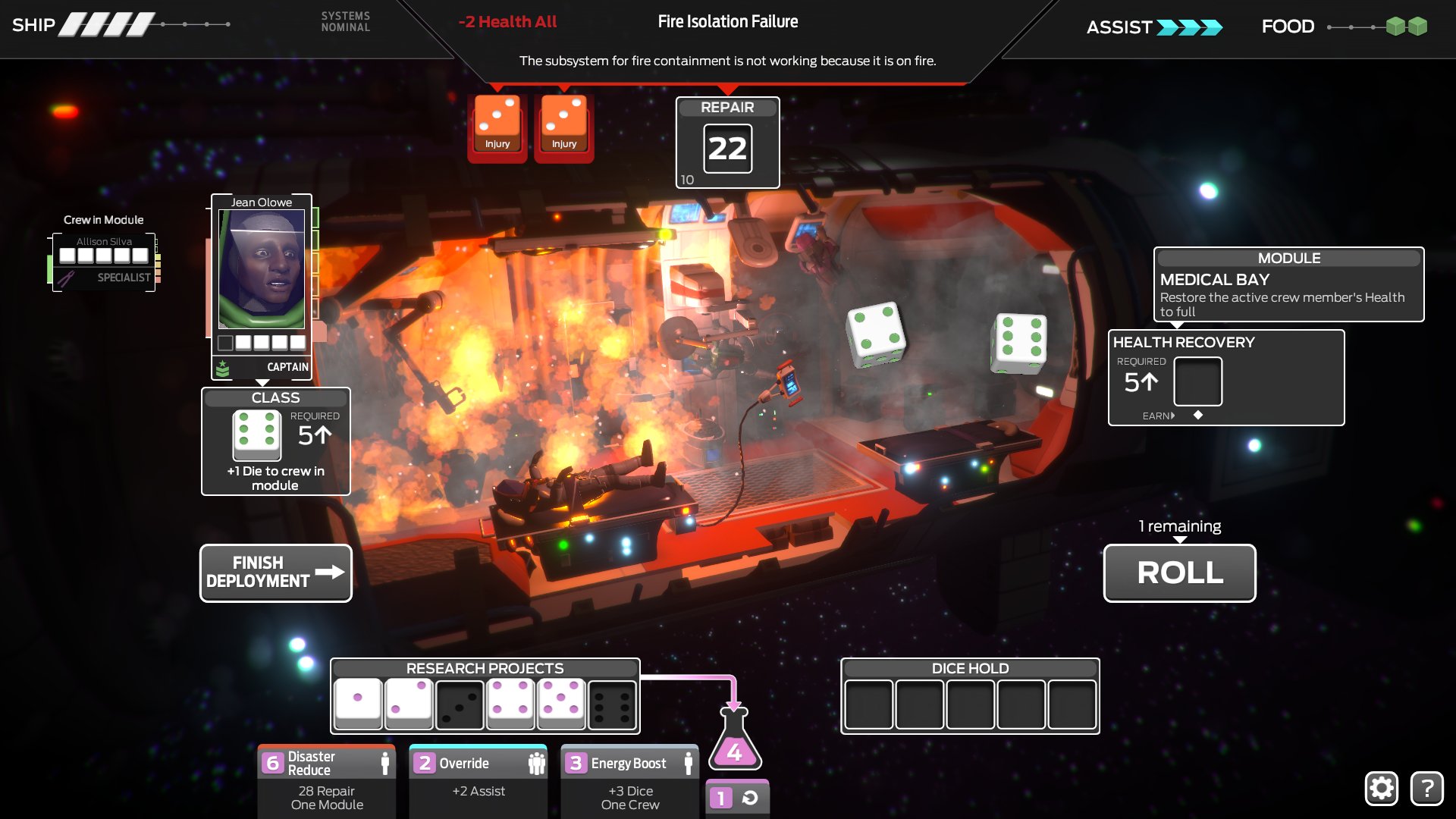
-
tharsis #2
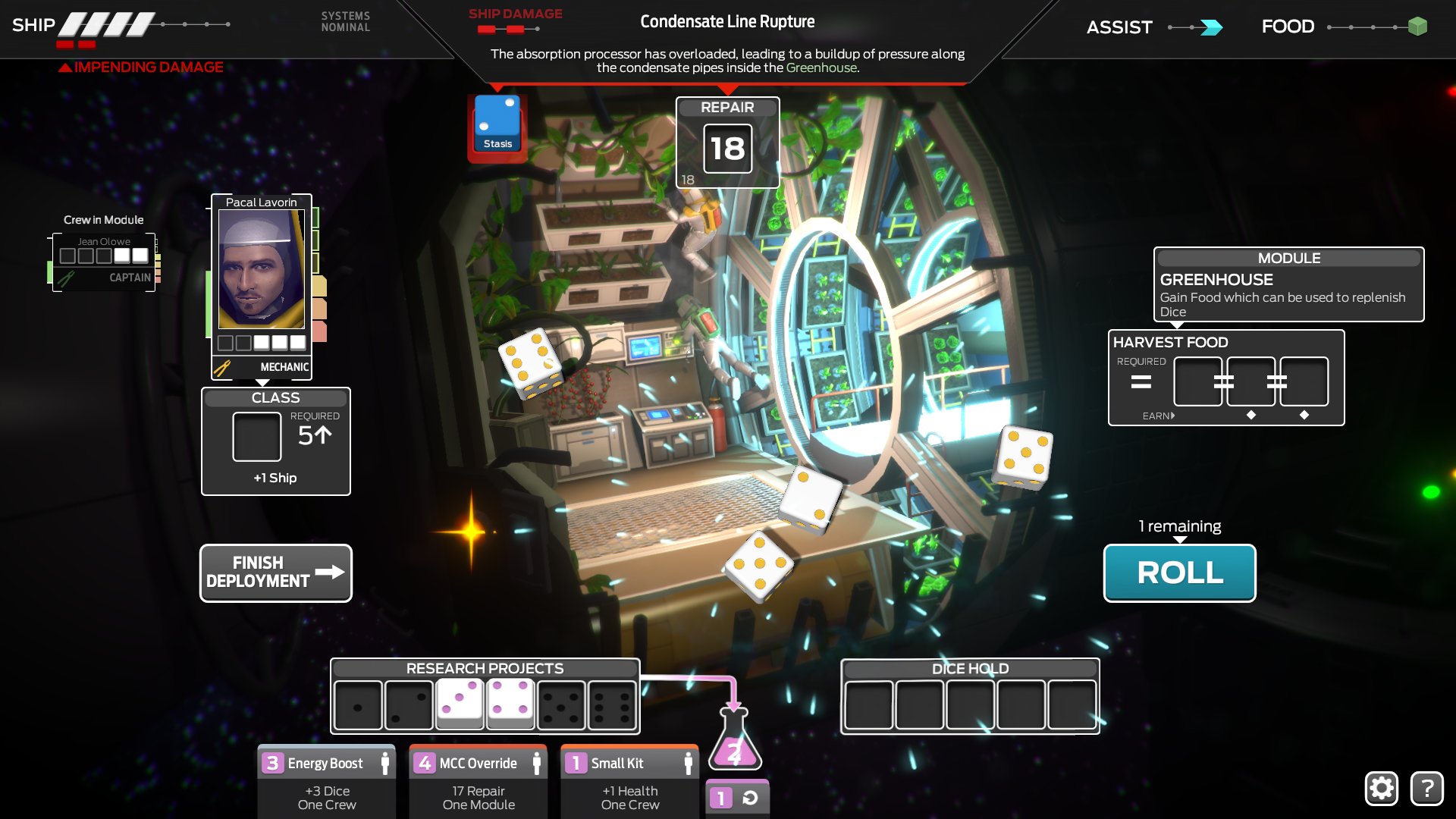
-
tharsis #3
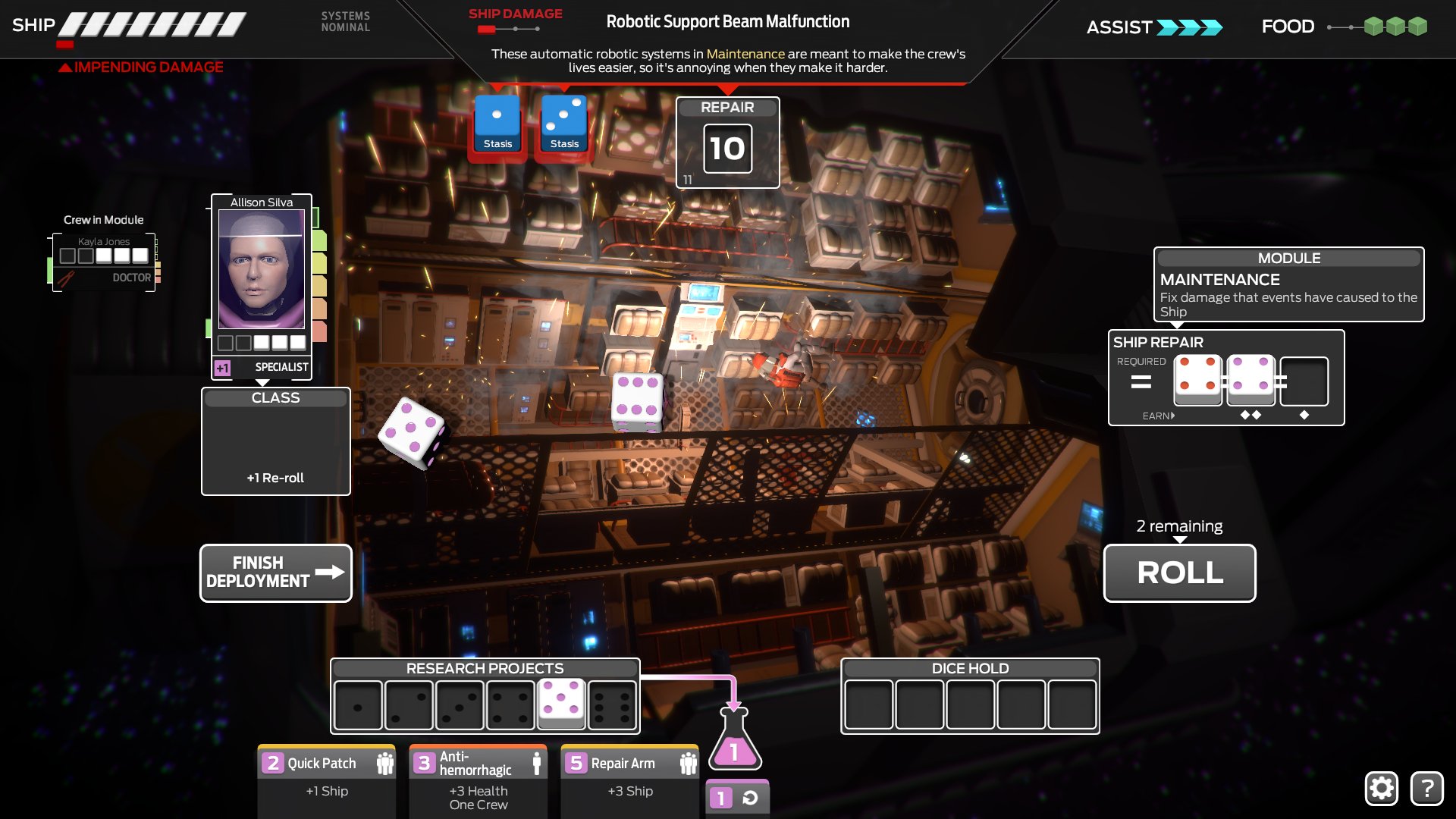
-
tharsis #4
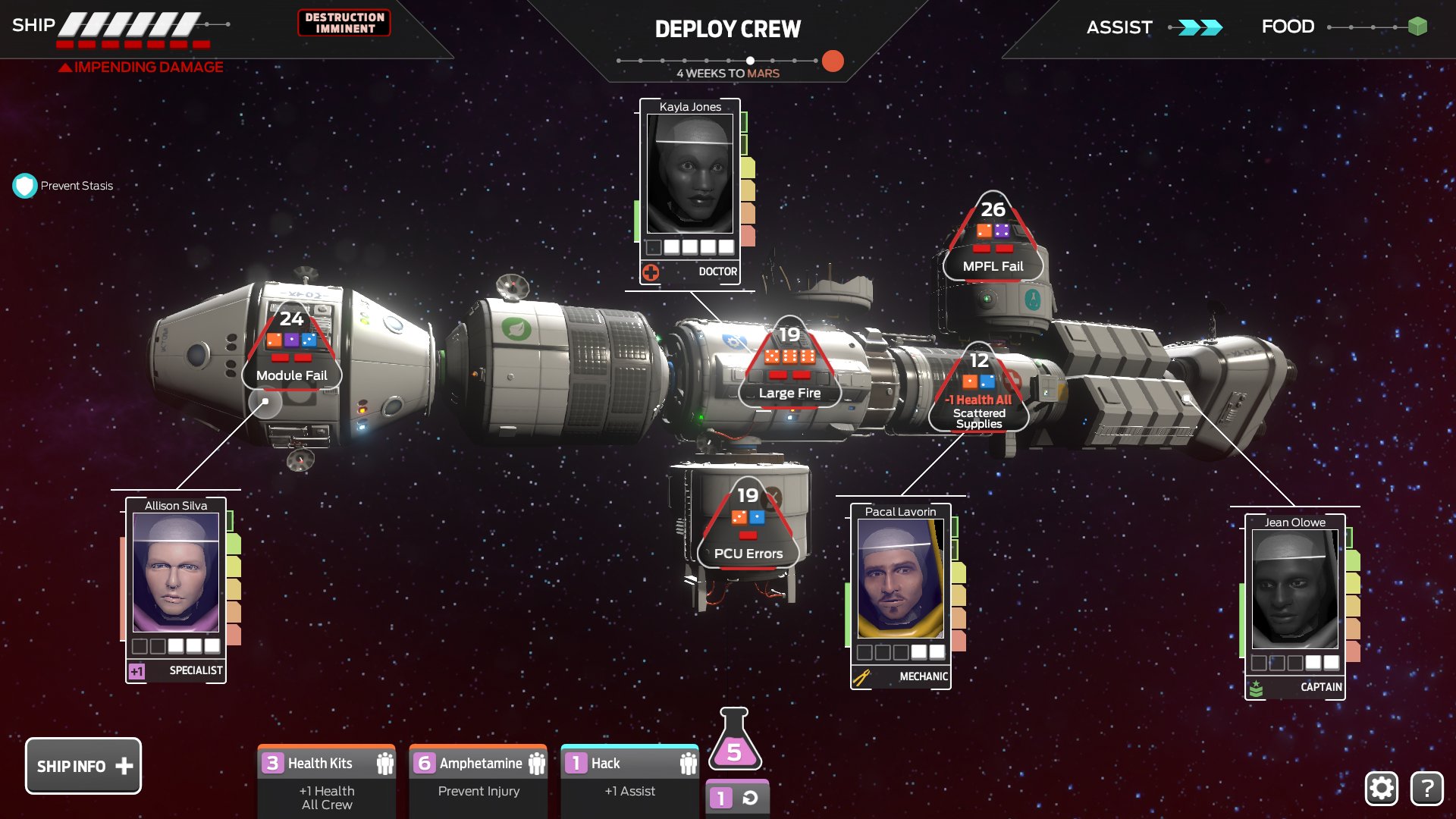
-
tharsis #5
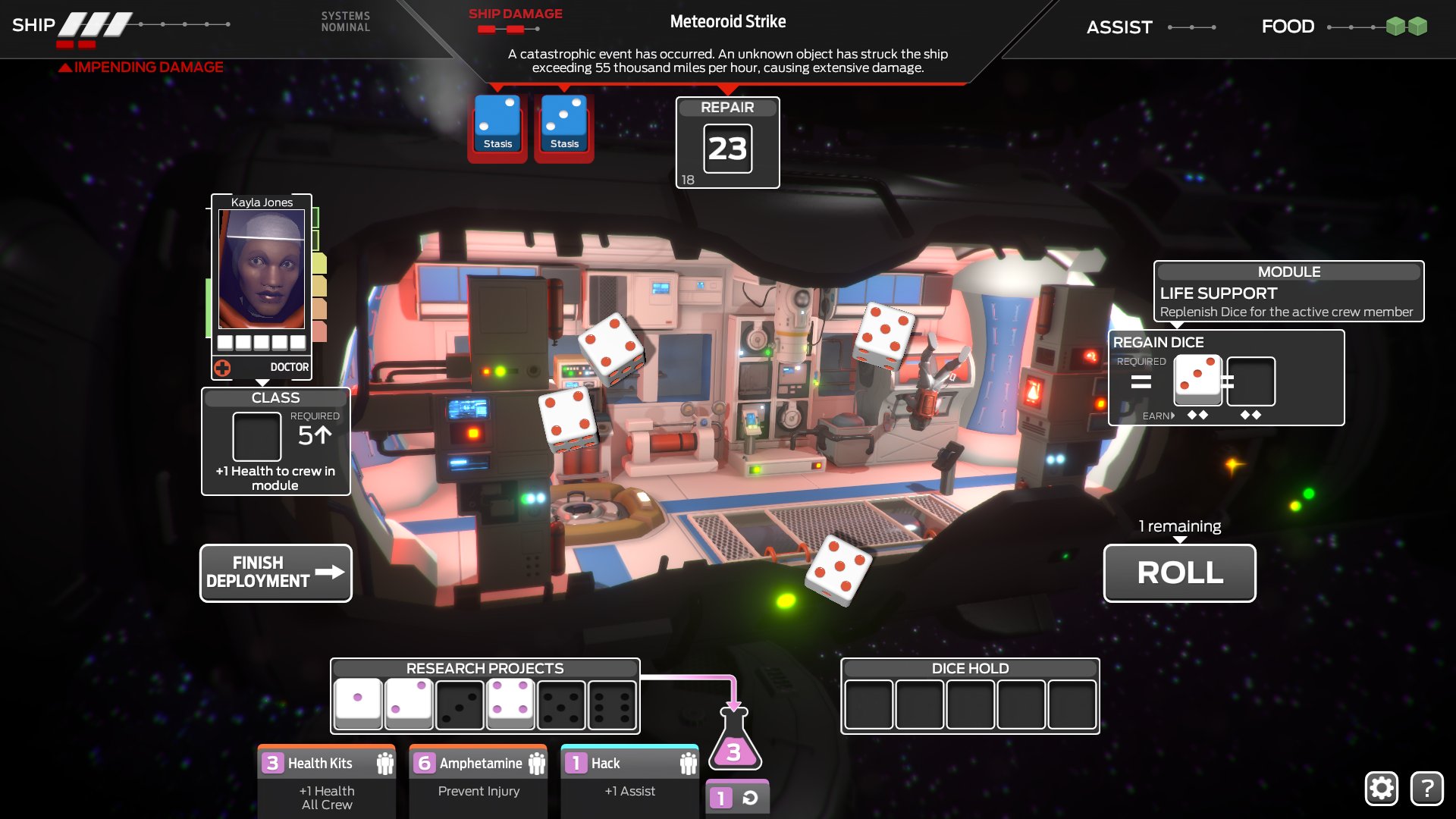
-
tharsis #6
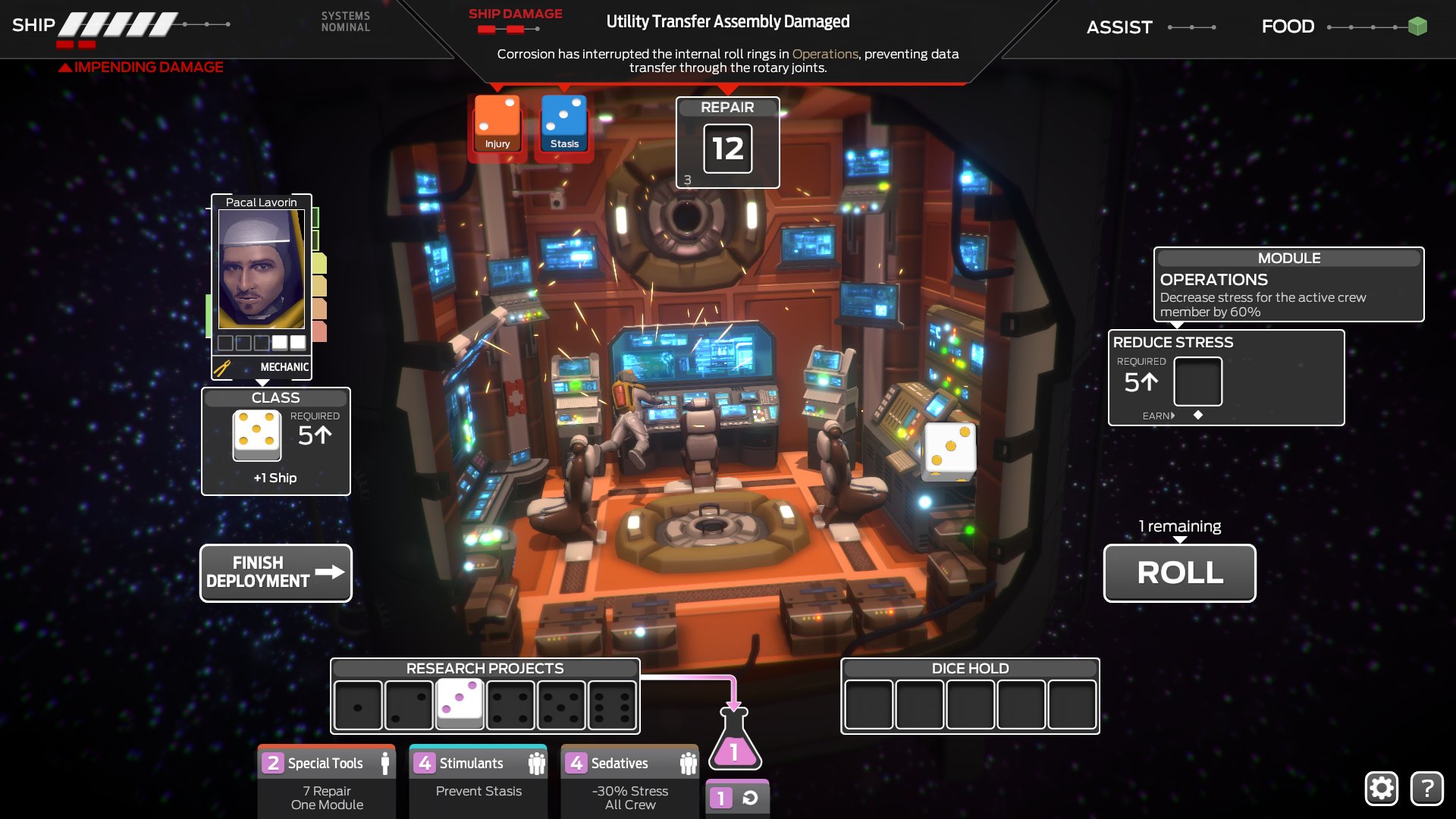
-
tharsis #7
